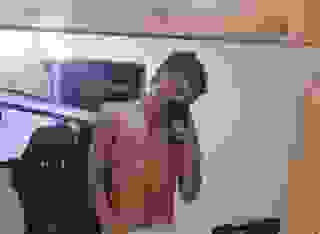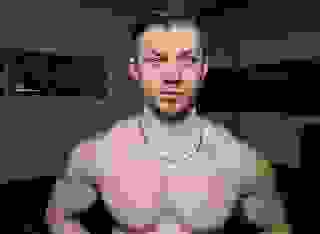Note: You can change font size, font face, and turn on dark mode by clicking the "A" icon tab in the Story Info Box.
You can temporarily switch back to a Classic Literotica® experience during our ongoing public Beta testing. Please consider leaving feedback on issues you experience or suggest improvements.
Click hereIn English (the only person he ever spoke Spanish to was his father), Gabe said, "I don't think so. I'm not allowed out at the camp except for special occasions."
The shuffling in the trunk stopped. "Well, we're not at the camp, are we?"
Gabe waited and soon Miguel started moving again. What the hell was going on? Apparently the floodgates were open now. Again in English: "No, we're not."
"What's wrong with your Spanish? Can't you speak it?"
Gabe switched over. "Nothing. What's wrong with yours?"
"Nothing," came Miguel's voice. "My father is from Argentina. We used to live there."
"Oh." Then Gabe had heard right. "How long ago?"
Silence for a few seconds. "Eight years."
"Are you a US citizen?"
"Yes. I was born here. What about you?"
"Of course."
Gabe checked the dashboard clock. Still on schedule. "What about your mother? Where is she from?"
"She's from here. But most of her family is back in Mexico." Miguel didn't say anything else for a little while, just kept working away. But then Gabe heard a sigh. "What I mean is, you won't burn your eyes out by seeing what goes on."
"I know."
Miguel continued to work. Steadily, almost unthinkingly (if Gabe thought about it any longer he would have talked himself out of it), he stood up out of the car, shut the door and leaned against it, facing the wall. He looked over his shoulder at Miguel, who, in a flash, glanced up at him and then away, muttering, "Thought you would be taller."
Gabe looked back at the wall. He listened as Miguel kept working. He turned around and pressed his stomach against the side of the car. "I'm not really supposed to be a part of the package-handling stuff."
Miguel studied what was left in the trunk. "I know that."
"This early in the game, they don't want me involved, besides just transporting it. Once I get more familiar, take on more responsibility, all that, I'm sure they'll let me do more."
"Alright."
Gabe waited, but Miguel said nothing more. "I'm going to get back in the car now."
"Alright."
And just like that, the conversation halted. Gabe sank down into the car, and Miguel, quickly as he had emerged, withdrew back into himself. At most, one or two words (perhaps only nods) were exchanged before Gabe idled out of the garage and into the night, and Miguel dragged down the overhead door, disappearing into the black.
—
In just three days' time, Gabe had endured a strange interaction with a highway patrolman, a sobering (albeit related) meeting in the trailer with Eddie and Otero, and now Miguel, haphazardly bearing his soul after a year of silence. Perhaps he shouldn't have been so surprised by it all, given the historical tendency of distressing events in his life to cluster. The night his father died, for example, had followed the worst argument between his parents he had ever witnessed.
As Gabe became acquainted with the family business, he was made aware of his mother's contempt for it, so silent that it was at times deafening. And occasionally, she was not silent. "You are like a black hole," she said to her husband with a sober and sharp tongue one night in the kitchen. "You draw everyone who is close to you closer still, into this evil industry. You capitalize on the destructive vices of so many strangers. And you also put yourself and those close to you in danger."
They had probably thought Gabe was out of earshot, behind the closed door of his bedroom, but instead he had been reading on the living room floor.
"Let it go," his father shot back. "That guy was way upstream, far from us. Besides, he got himself killed. He was mixed up in his own problems. He made his own enemies. I have none."
"Otero fed you that. They were after what he carried."
"Otero fed me nothing. I know the story myself, just like I knew the man. He brought it on himself, Bonnie. He got mixed up in some other stuff that has nothing to do with us. They took the goods he was carrying as an afterthought. And yes, Otero happens to agree with me, because it is the truth."
"Otero convinced you. You believe everything he tells you...but you will never see it that way, will you? And now our son is out there, alone at night, carrying all of that..."
"He is safe, Bonnie. He has protections. I promise you."
"He is your own son, Marco. Are you even listening to yourself speak? I was silent when you took Eddie. I didn't know the risks then. Eddie was twenty-two, Marco, remember? He was just a kid. And now, it's my baby, my Gabriel...and at seventeen..."
"The boy is old enough, and it's about time he goes to work."
"He is still a child." Her voice broke as she said the words.
Gabe had turned his head so that his ear was pressed against the wall separating him from the kitchen. The fight escalated from there. At its dramatic peak, Gabe's mother climbed onto the countertop, pulled a wood-framed clock from the wall and smashed it against the linoleum floor. It shattered. A shard of glass ricocheted through the doorway and fell to rest on the rug, next to his knee.
Maybe something within his mother had, by that point, already begun to seize. Maybe a broader part of her consciousness had been swept up early into the building wave of tragedy that would soon crash over her, even as Marco stood before her then, steaming with frustration, still very much alive—a seemingly perfect vision of health. Looking back, it did not seem impossible to Gabe that the universe could operate in this way.
Late that night, the call came through. She was fully trampled then, the irony of the extraneous nature of his death completely lost on her. She lay prostrate at the foot of her white bedroom vanity, her wails baring a blackened sear, because her long-held fears had finally come true.
On the day of the funeral, Eddie approached Gabe's mother as if they knew each other well (though to Gabe's knowledge they did not), offering his condolences. Gabe stood close by as Eddie said something to her in Vietnamese, but he spoke very quietly and the subject was nuanced, so Gabe had not comprehended it. After that day, his mother would fall silent over the idea of his entering the trade, and if she ever did caution him, it took the form of familiar, generic warnings about life's dangers—the warnings of any parent. Gabe would always wonder, but never ask, what exactly Eddie had said to his mother; maybe it was something extraordinary, or maybe it was just a few genuine words lifted from the cooling manger of her native tongue. The latter seemed more likely.
Eddie had come next to Gabe. Lydia was with him now. She looked small and pretty but very pale at his side. He said, "My life will serve as a buffer for yours. I will protect you."
As Eddie's words clicked into place, Gabe's surroundings had sprung to focus; the dry cemetery grass crunched under the couple's shoes as they departed from him and wind came droning through the fronds of the palms lining the edge of the grounds (where he could have sworn some odd, tall and thin figure moved around earlier, but where was this person now?).
It became clear in that moment: The best way to honor his father would be to continue down the path laid before him. But even setting his father and everyone else aside, Gabe had been deeply compelled to begin making the deliveries on his own. The weeks that followed felt like the start of a life and days that finally mattered, even as they were drenched in the wrenching pain of loss.
—
A car's headlights stretched out laterally behind him, and then its joyriding driver darted over one lane to pass. The twin-kidney grille of a BMW flashed across his driver-side mirror, engine roaring behind its bars, and the car leapt ahead of him. Its taillights became small and distant, and the night surrounded him again in its calming shroud.
There were many buildings surrounding him now, tall glass obelisks reflecting the moonlit night sky. He made out, in quick instances, a glowing living room or kitchen or bedroom which was level with the elevated freeway: hulking big-screen televisions, unfurling brass fixtures, sprawling black leather furniture...and sometimes the inhabitants themselves who were up all hours, even baring their naked bodies, categorically unconcerned with drive-by snoops such as Gabe.
Thank God, he thought, for all the distractions of the world.
In the early hours of the morning, the Orange Line resumed its lazy passes. As always, it had begun making its rounds by the time he parked the car in the gravel lot, walked slowly along its dusty lanes, and came to arrive at the platform. A display listed the next train to arrive in twelve minutes, at 2:50 a.m. Sometimes he managed to catch the 2:30, but more often than not, it happened just like this.
Central Station was the largest in Las Sombras, buried in the middle of downtown, incorporating two malls and serving as a hub for eleven of the city's nineteen lines. It was one of just a few places left in the city that still captured Gabe's childhood sense of wonder. The station, an incongruous and (to newcomers) inscrutable labyrinth of corridors, had amassed slowly over more than a century. Walls were a convoluted patchwork of materials, with many decades' worth of changing sensibilities reflected in wood and steel, glass and clay, velvet and porcelain, the shifts between them often jarring. While many in Las Sombras complained that it was ugly, or inefficient, or in dire need of upgrades, Gabe instead wondered: Who could not love such a beast?
He left toward a public restroom, delaying his departure from the terminus platform of the Emerald Line. It was a neglected, distant facility at the end of a long, dim hallway, paved with splintering yellow tiles. The shadowy tunnel had once carried passengers to and from the bustling Odin Line platform, now abandoned beyond a brick barricade. These days, it was on no one's way to anywhere. He rounded a corner and walked through a narrow gap between twenty or thirty food stalls. Only half the vendors were open at this hour, and many were idle, calling out to Gabe and a handful of others who passed. He walked quickly by them without turning his head.
He did not need to use the restroom in a conventional sense. It had become a frequent deviation for Gabe, just as—or perhaps, because—it had already for other boys and men. Many of them were young like him, and most not nearly as timid. He gave himself permission only as his run was technically over, and saw it as a release, in more than one way, of the tension amassed over a day. As he neared the room's entrance, Gabe noticed more quivering fluorescent tubes had given out overhead, casting the corridor in confined segments of dim glow.
The restroom itself was filled with light. Usually, Gabe satisfied himself by watching the actions of others. Less often, he was watched by others, which also brought him a quick, soaring thrill. He rarely allowed himself meaningful physical contact with anyone, and even during those few, exceptional encounters, minimized the possibility of personal harm.
Usually, for the obscurity of location and hour, the restroom was tellingly busy. But at other times it was empty. Tonight it was neither: Only one person, a tall white boy, stood conspicuously at the far end of the room. He looked young, maybe even younger than Gabe. He was thin and rather lanky, his face bright, attractive. He had freckles that reminded Gabe of the handsome patrolman. The boy had leaned against the wall, scribbling something in a small notepad, but when Gabe entered he put it away, freed himself. Gabe wavered for a second, then went toward him.
He exposed himself as the other boy had done and silently, expertly made clear his intentions for minimal contact. The boy was respectful of this, and after some time had passed in strict admiration, Gabe allowed the boy to take hold of him. It won't be long at all now, thought Gabe, and he submitted himself.
He left the restroom behind five minutes later, saddled with the queasiness of feeling lighter in one way, heavier in another. The novelty of this sensation had long faded. Gabe felt guilt for his behavior—a mysterious, particular sting of judgment cast toward him from someplace else. But it wasn't God...or a god, or anything like that. He had no romantic partner to whom he must remain faithful. Maybe it was his father, who was somehow, from some unworldly vantage, watching him in these moments, and who would be sorrowfully shaking his head. This possibility was an especially painful one for Gabe to consider.
And yet, maybe it wasn't his father at all. On darker nights than this one, Gabe had peered in the direction of the abandoned platform through gaps around the edges of the clumsy masonry, and the thing had stood right at its edge, taught, clear flesh pulled over bone. His back was always to Gabe. But once, he had twisted around in a flash—that awful, unalterable grin cutting straight through the brick. For an instant Gabe had wanted to run, but instead stood still, breathing in and out once before walking steadily back toward the clean light of a larger connecting hall.
The Emerald Line was older, clattering and screeching its way through miles of dank tunnel. By four in the morning, after a short walk from the station, Gabe entered the condo he shared with his mother. She snored loudly, which indicated that she had drunk a lot before bed. He entered her bedroom and saw in the moonlight from her window that she was too hot again, soaked in her own sweat, so he pulled off the comforter and adjusted the sheet up to just below her shoulders. He filled a glass with water and left it on her bedside table.
The sun rose a few hours later to bake the side of the building opposite the balcony, allowing Gabe to sleep in the shadows until around ten-thirty. Sometimes his mother was still in bed at such an hour, but this morning she was awake, mumbling around in the kitchen when Gabe slid open the door and stepped inside.
"Gabriel," she said, looking sadly into a box of cereal, "leave the door open."
"How did you sleep?"
"I slept." She abandoned the cereal and opened the refrigerator. "Will you go buy groceries today?"
"Yes."
She hobbled around as would a person who was much older, clothed in dirty, pale-blue pajamas, shoulder-length black hair mashed against one side of her head, leaping out sideways from the other.
"How are you feeling, Ma?" he asked her.
"I'm feeling fine, Gabriel."
"You can come with me if you want."
"I don't want that, and you know it. Why would you ask me a thing like that?"
"I'm sorry. I don't know. It's been a while since you've been out, that's all." Over the last several months, she had only left home when it was absolutely required: for visits to the doctor, or her therapist, or to buy alcohol in secrecy.
"Well, I don't want to go out."
"I know, Ma, I'm sorry."
He helped settle her into a breakfast of reheated congee, then flipped through channels on the television for her until something satisfactory came up. He left her to eat and showered, returning to take her bowl and wash it in the kitchen sink. He came to rest next to her on the couch. A daytime talk show was on. The audience screamed at the stage after a man admitted to sleeping with another man, and then a woman began to pummel his shoulder and chest over and over with her fists. Seconds later, the other man was brought out on stage, and she turned her angry beatings toward him.
When Gabe turned to look at his mother, her eyes had already narrowed on him. She stared intently at him in that way, long enough that he became distraught.
A commercial came on, and just when Gabe believed the moment was over she said, "You're like them, aren't you?"
"Like who?"
She gestured toward a bottle of lotion moving in slow marquee across the screen. "Them. The two men on television."
He didn't answer.
"Your father always believed you would end up that way."
The noise from the television fell away, as did the traffic down on the street. Only a cheap plastic wall clock ticked away in the kitchen. Gabe was stunned. "What made him think that?"
She searched for a moment. "It's the way you move your hands when you speak—see?" She demonstrated for him. "You move them the way I do."
Gabe peered sadly down in his lap where his hands lay folded. "That doesn't mean anything, Ma. I said I'm not."
She shook her head and clicked her tongue at the television. "I don't know, I don't know."
It was clear that the head-shaking and the tongue-clicking were not meant for the people on television. But she pressed him no further, and he went to pour a bowl of cold cereal, gulping it down quickly before preparing to leave.
"I'll make you a list," she said, and he waited by the door as she sat hunched over the coffee table scribbling on a scrap of paper.
As he was leaving, she said, "Don't stay away too long."
"I won't."
Mrs. McAllister, the elderly woman who lived next door, milled around her potted plants just outside. There were probably close to fifty, running the length of the open-air hallway. Some sat perched atop there stone rail. She said once that it was so they got the meat of the sun at the beginning of the day, when it counted most.
Though still shaken, he knew better than not to greet her.
"Hello, Gabriel," came her reply. Lately, the shaking in her voice and hands had become severe. Dark splotches attacked her cheeks and neck. "I thought you would want to know—he's out today. Usually he's just out at night but I saw him creeping around this morning. Have you seen him?"
Gabe shook his head. "I'm sorry."
"Don't be sorry. It doesn't matter if you've seen him or if you haven't seen him." She turned away, her focus returning to her plants. "It only matters," she said, into the center of an enormous echeveria, "that we keep our distance."
Over the years he had come to know what form her dismissal took (this was it), so he left her alone and headed down the concrete stairwell.
On the street, mopeds and scooters sputtered past, aggressive riders threading themselves between cars and a lumbering, inbound army of produce trucks. Clotheslines spanned the gap between all but the first and second floors, bowing under the colorful weight of fabric; the stink of warm fish wafted from shop windows and up narrow streets from the water. The sidewalks were, as always, packed with people drifting from shop to shop, perusing, bartering here and there. Some were locals; others were entire families who came in from the suburbs to experience the grit of the famous inner-city markets. This is how people live here, Gabe had overheard parents tell their pale children. This is where they buy their food. This is how it is for them. See that man on the ground over there? Take this quarter and give it to him. He didn't say thank you? Well, that's okay. No one ever taught him his manners.
Gabe would buy groceries later. He headed south for two blocks before turning right on Loma, a cramped, flume-like lane between buildings that made for rapid descent to the water. If he did not visit it for many days or weeks, the ocean's calls became pained, urgent, and so there were days like this when he could not keep himself from it. At the bottom of the hill, he crossed Belmont Avenue, which ran for many miles along the shore, stepped down from the concrete boardwalk and finally landed on the hot sand.
He carried his sandals in one hand as he moved among a multicolored assortment of beachgoers and went south, away from the pier, where the crowd began to thin. There were massive shell deposits here, which he stepped on: feet crunching through fresh, cool batches of calcium, then thudding against hard, wet sand, repeating. He descended into the surf until it washed up to his knees.








